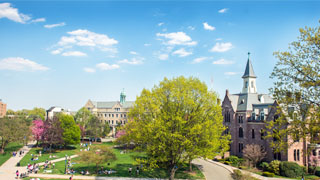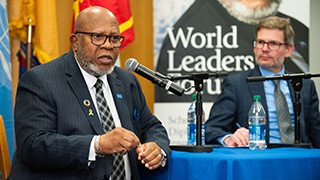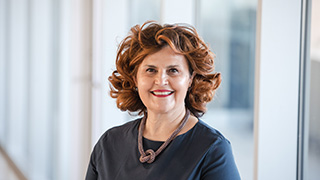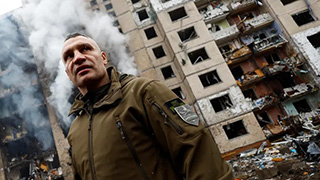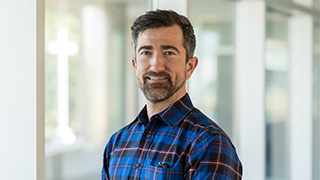Graduate Student Kyle Jensen Takes Advantage of Coverdell Fellowship
Monday, November 16, 2020
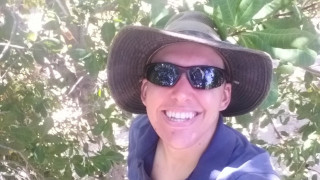
Kyle spent two years as a Food Security Advisor in Mahajanga, Madagascar, where he worked alongside local farmers to build climate smart gardens that required small amounts of water. He says this was particularly important because the region experiences a series of droughts, which increases food insecurity for many households. According to Peace Corps Madagascar, "the Food Security Project seeks to build the capacity of household decision makers, gardeners, and farmers to create and maintain bio-intensive, climate-smart growing spaces that produce nutrient-dense food for family consumption."
As the first Peace Corps Volunteer in his community, Kyle had to explain why he was there and how he could work with the community to adopt new farming practices for producing drought tolerant crops. "A lot of my work addressed the need for mothers and their children to have access to diverse, nutritious food." Kyle said. He quickly learned that most of his work would require building relationships and trust among members in the community. Collaboration was crucial to understanding their vision for the community and Madagascar overall.
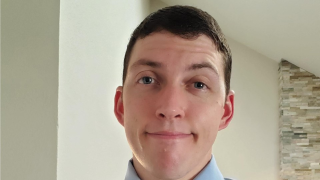
As a graduate student, Kyle believes his experiences in the Peace Corps helps him better understand complex issues and different perspectives. "What I learn in class makes me think about what I saw and what I experienced in my service." Having communicated with members of the U.S. Agency for International Development and the U.S. Department of State during his service and other experiences, he explains, help him to further engage with the material in class and understand different perspectives, such as those of the global south and issues of human security. This sentiment is echoed by Peace Corps Director Jody Olsen, "Returned Peace Corps Volunteers bring the richness of their experience to the classroom and underserved U.S. communities. The course curricula may often change and grow because of the unique perspective volunteers offer the program."
"The Coverdell Fellows Program is a natural fit for us. Both the Peace Corps and the School of Diplomacy recognize the importance of leadership development in an international setting," said Courtney Smith, Acting Dean of the School of Diplomacy and International Relations. "Both the Peace Corps and the School of Diplomacy understand that we are called to share knowledge and resources to make a difference in the lives of others."
As part of the Fellowship, all program Fellows will complete internships in underserved American communities while they complete their studies, allowing them to bring home and expand upon the skills they learned as volunteers. In the summer of 2020, Kyle worked with the International Rescue Committee as an Adult Education intern. As work shifted primarily to a virtual platform due to the Covid-19 pandemic, Kyle quickly adapted and remained flexible during this shift. Adaptability and flexibility are among many invaluable skills that many Peace Corps Volunteers develop during their service.
The Paul D. Coverdell Fellows partnership between Seton Hall University's School of Diplomacy and International Relations and the Peace Corps was launched in 2016. Since then, The School of Diplomacy has welcomed four Paul D. Coverdell Fellows. Kyle Jensen RPCV Madagascar 17'-19', John Eisenhauer RPCV Tonga 17'-19', William Draves RPCV Namibia 18'-20', and Krystal Martinez RPCV Vanuatu 18'-19'. "We're grateful to Assistant Dean Daniel Kristo and Dr Catherine Ruby, our Director of Internships and Career Development, for building the connections with the Peace Corps, and we're delighted at the contributions that our Coverdell Fellows have made to the life of the School." said Martin Edwards, Associate Professor and Department Chair, "This is a partnership that we really plan on deepening in the coming years."
Seton Hall University's School of Diplomacy and International Relations was founded in alliance with the United Nations Association of the U.S.A. in 1997. The establishment of their Coverdell Fellow program represents the first formal university partnership between Peace Corps and Seton Hall University.
The Peace Corps recently celebrated the 35th anniversary (October 8, 2020) of the Paul D. Coverdell Fellows Program, which was established in 1985 with the first Coverdell Fellows program at Teachers College, Columbia University. In the fall of 1985, a group of returned Peace Corps Volunteers began teaching in underserved communities in New York City while studying at Teachers College. Since then, the program has expanded greatly, and Peace Corps now partners with more than 120 institutions of higher education across the country in 37 states. The partnerships cover more than 200 programs at these universities, offering returned Volunteers more than 300 graduate and post-graduate degrees. To commemorate this milestone, the Peace Corp shared this short video about the Coverdell Fellows program.
To learn more about the Coverdell Fellows Program at Seton Hall University contact
Mr. Daniel Kristo at (973) 275-2142 or at [email protected].
Categories: Arts and Culture, Nation and World

